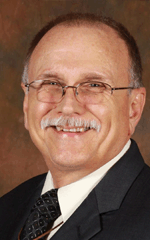Strengthening Local Churches for the Harvest
“Enter to worship. Depart to serve.” Those words were painted on a large sign above the doors of a church I once attended. It took me a few decades to fully understand the true
meaning of those words, because—frankly—I didn’t see them modeled too much. Most of the serving I observed was within the walls of the church, and it was serving one another. As wonderful as that was, it was not doing much to engage the surrounding community and help point them toward Christ.
After three years as an active church member the typical person in the pew has few relational connections outside the congregation, and only superficial interactions with their non-Christian neighbors. Many of our churches are over-programmed to the point that our members spend so much time engaged in church-related activity that they are too busy to serve as president of the school parent’s association, participate in local charitable causes, or just enjoy recreation with a co-worker. All too often we act as though the world around us is more our enemy than our mission field. If we truly desire to engage in the harvest, we have to come to grips with the reality that the harvest is not taking place inside the walls of our churches, but in the surrounding community. Our weekly gatherings should be geared toward equipping believers, celebrating what the Lord is doing in worship, and partnering with our people in the harvest that has been taking place throughout the week.
“You can’t win your enemies to Christ. You can only win your friends.”1 This is, for many churches, a paradigm shift. We have come to believe that if we can get our friends to join us in an organized meeting in the church building we will be engaged in the harvest. We have placed enormous importance on two hours each week (10:00 AM until Noon on Sunday) and missed the opportunities presented during the other 166 hours of the week. We pray, “Your kingdom come, Your will be done in earth, as it is in heaven…”2 without understanding what that really means. The Kingdom is the realm in which the King reigns supreme, and where He makes things happen according to His will. When the church prays, “Your kingdom come” we are calling forth the rule and reign of our King, and announcing His desire to see righteousness, justice and peace prevail. When the church prays, “Your will be done in earth, as it is in heaven” do we fully grasp what we are declaring? In heaven there is no sickness, no homelessness, no abuse, no suffering, so we are declaring the shalom, the completeness/wholeness of the Kingdom where our Lord reigns when we usher in healing, compassion, righteousness and justice in His name. That is the door to harvest we sometimes fear to enter.
As the church moves away from being a holy huddle and seeks ways to impact our cities with the gospel, we need to see the fingerprints of Christ in areas not always labeled with a Christian name. Driving nails for Habitat for Humanity, mentoring the children of incarcerated parents, collecting and distributing food for the hungry, serving on disaster relief teams… surely this is God’s work when done in His authority.
One of my favorite days in seminary was an exercise called “Exegeting the City.” We took public transportation into the heart of Los Angeles and started walking. Our mission was to see if we could find evidence of God’s presence in the center of such a large, urban, secular metropolis. After miles of walking, talking to people and observing I departed that afternoon with a deep sense of awe at the hundreds of powerful evidences we had seen of God’s presence, manifested through God’s people, in the heart of the secular city. Pastors, why don’t you take your leadership on such an excursion? Walk with them through your town or city looking for the fingerprints of God. You are likely to find them in unlikely places. Be prepared, because you are also likely to find a lot of hurts needing healing, and they will gnaw at your heart until you take action. “If you want to prove your priorities don’t show me your Mission Statement… show me your spreadsheet.” 3 Matthew 6:21 [NIV] says it like this: “…where your treasure is, there your heart will be also.” Love your city more than you love your stuff.
When author Francis Chan was senior pastor of Cornerstone Community Church in Simi Valley, California, the church was convicted of the amount of money being spent on themselves. Their budget review revealed that the overwhelming majority of their income from contributions was going toward the maintenance of the machine. Facilities, salaries, equipment, expendable supplies were their primary expenditures; money from the church membership was being used to provide programs for the church membership. In a spirit of repentance the church leadership wrote into their church governing documents a requirement that 50 percent of their income be given to needs outside of the church. For every dollar the church received in tithes and offerings they were allowed to spend no more than 50 cents for the church budget. This was, no doubt, not an easy thing to achieve. It is likely that sacrifices were made and some difficult budget decisions resulted from this decision. However, Cornerstone Community Church gained a heart to give and a reputation as a giving church.
There is a mental trap pastors often fall into. Faced with a stack of bills to be paid and limited financial resources, it becomes easy to begin to cling to the church income stream and see it as a finite resource to be preserved when, in fact, it is God’s provision through His people, and is a limitless, renewable resource when held with an open hand. Pastors are prone to remind the congregation that “you can’t outgive God” to encourage generous offerings. That same maxim can be equally applied to the church budget. A local church engaged in the harvest must trust God and His willingness to provide and not make every ministry decision a budgetary decision.
If you feel impressed of the Spirit to invite someone to come and minister, sing, teach, or preach but hesitate because you fear collecting a special offering or providing an honorarium will affect your monthly income, the budget is driving your ministry in unhealthy ways. One of the goals of the pastor of a local congregation is to teach people that God is our source and provider, and He is a God of plenty and not lack.
Along with encouraging them to give their first and their best in tithes and offerings, my local church actively promotes child sponsorship programs such as Compassion International and our own One Child Fund. On top of that each year we pack hundreds of shoeboxes for Samaritan’s Purse Operation Christmas Child. We also operate a food distribution center for the Hawaii Food Bank, support numerous young people as they participate in short-term missions with Youth With a Mission, and much more. We have proven that generous giving is not a zero-sum game — increased giving to needs outside of the local church does not result in less money for the church. Instead, as people learn to give freely their hearts are open to becoming more faithful in stewardship to the church as well. “Ask the Lord of the harvest, therefore, to send out workers into his harvest field.”4 We love that passage, but sometimes forget that the workers we are asking the Lord to send will probably be sent from the pews of our local church. Take to time to reexamine the priorities of your life and your local congregation. Consider the possibility that we might be structured in such a way that we have no time or money left for the harvest. Consider what your church schedule and budget might look like if outreach, Kingdom proclamation and harvest were the highest priorities.
- Rick Warren – Twitter @RickWarren;
- Matthew 6:10;
- Dr. Michael Lawson, Senior Professor of Christian Education at Dallas Theological Seminary;
- Matthew 9:38 (NIV)


